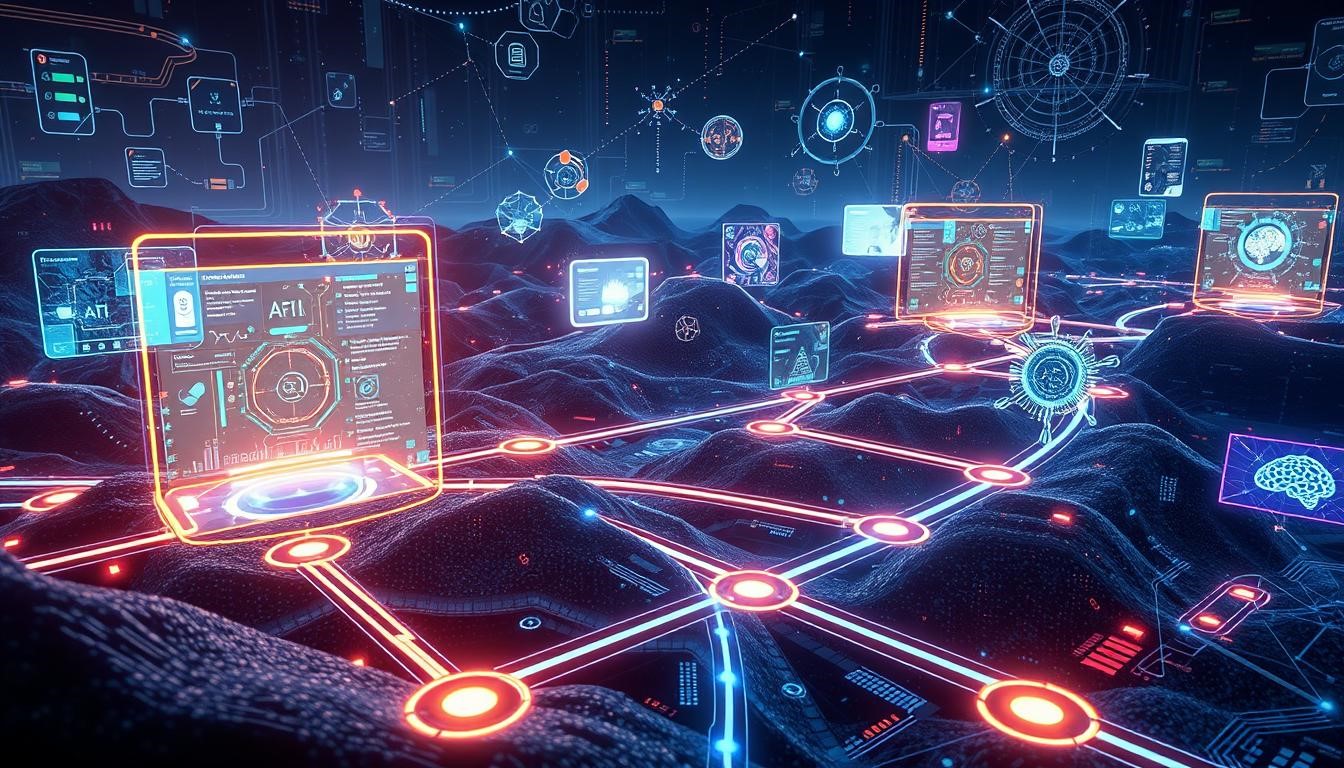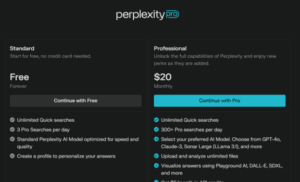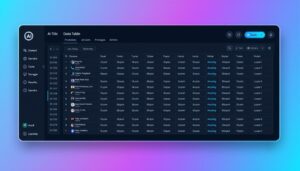HR Reps Being Replaced by AI? Exploring AI’s Role in Human Resources
In the world of human resources, a big question is popping up: are HR reps being replaced by AI? As tech gets better, people are wondering how AI will change HR. This topic is getting a lot of attention and debate.
Will AI change the job of HR people? Will it make HR tasks easier and faster? Or will AI help HR reps do more important work? The answers to these questions are important for the future of HR and work.
In this article, we’ll look at how AI and HR are changing together. We’ll talk about what AI can and can’t do in HR, focusing on how AI can analyze data for better outcomes. From finding new employees to keeping current ones happy, we’ll see how AI is changing how companies treat their people.
Key Takeaways
- AI is changing the HR world, making some tasks easier and better.
- There’s a big debate about if AI will replace HR reps or just help them do their jobs better.
- It’s important to know what AI can and can’t do in HR to use it well and keep things balanced.
- AI is changing how HR departments find, keep, and manage their employees, bringing both good and bad changes.
- Using AI in HR needs a team effort, with HR people learning and growing with the tech to ensure that AI isn’t replacing human HR roles.
Are HR Reps Being Replaced by AI?
The role of artificial intelligence (AI) in human resources (HR) is a hot topic. Some think AI will take over HR jobs, but it’s more complex than that. AI can help HR teams, but it can’t replace the human element that’s key in HR.
The Debate: Will AI Replace Human Resources Professionals?
AI is changing HR, no doubt about it. AI tools can do repetitive tasks, analyze big data, and make fair hiring choices. But, will AI replace HR pros? It’s a topic of debate. Some say AI makes HR more efficient and fair. Others stress the need for human empathy and personal touch in HR.
Understanding the Capabilities and Limitations of AI in HR
- AI is great at handling big data, finding patterns, and suggesting actions. This helps a lot in improving HR roles and responsibilities while ensuring that AI isn’t replacing essential human interactions. finding talent, keeping employees happy, and analyzing HR data.
- But, AI can’t match the complex decisions, empathy, and people skills needed in HR. This includes handling employee issues, managing performance, and growing talent within the HR function.
- The best HR teams use AI to boost their work, not replace it. By combining AI’s strengths with human skills, HR can become more efficient and caring.
The real question is not if AI will replace HR, but how it can help HR teams. By using AI, HR can change their work, improve the employee experience, and focus on the big picture.
AI and Recruitment: Streamlining the Hiring Process
In HR, AI is changing the game. AI-powered applicant tracking systems are transforming HR departments by streamlining the hiring process. are making it easier to find and hire the best people. These smart systems take over the boring parts, letting HR focus on what really matters.
AI-Powered Applicant Tracking Systems
AI can sift through lots of data to find the right candidates. It handles tasks like checking resumes and setting up interviews. This makes hiring faster and more efficient, helping HR teams work better.
Reducing Bias and Enhancing Objectivity
AI helps make hiring fairer by reducing bias and enhancing objectivity. It looks at candidates without personal biases, ensuring everyone is judged equally. This leads to a more diverse and skilled team, focusing on what candidates can do, not who they are.
AI is making hiring better and more fair, alleviating some fear of AI among candidates. It helps find the best candidates and makes the recruitment process more inclusive, demonstrating the benefits of implementing AI in HR. As AI gets smarter, it will change HR and how we find talent even more, showcasing the benefits of AI.
AI in Employee Engagement and Experience
AI is changing the role of human resources (HR) for the better. It helps HR teams focus on important tasks while AI handles the routine ones. This makes the work environment better for everyone.
Chatbots and Virtual Assistants for Employee Support
AI chatbots and virtual assistants are changing how we get help at work. They offer quick, personalized support, easing the load on HR. AI tailors responses to fit each employee’s needs, making their experience better and showcasing the use cases and benefits of HR technology.
Personalized Learning and Development Recommendations
AI is also key in employee learning and growth, enabling HR to implement AI solutions that foster development. It looks at data to suggest training that fits each person. This lets HR focus on big plans and helps employees grow. It means HR can give advice that really helps, boosting everyone’s work.
| AI Capability | Benefit to HR | Benefit to Employees |
|---|---|---|
| Chatbots and Virtual Assistants | Reduced workload for HR professionals is one of the key aspects of HR that AI can automate effectively. | Immediate and personalized support |
| Personalized Learning and Development | Freeing up HR to focus on strategic initiatives | Tailored growth and development opportunities |
AI is making a big difference in HR operations, but it’s not the only answer. Some things, like empathy and understanding, need a human touch. HR leaders aim to use AI and human skills together. This way, they create a better work environment for everyone.
Leveraging AI for HR Analytics and Insights
In today’s business world, HR pros are using Artificial Intelligence (AI) to get deeper insights. AI is changing how companies manage talent, keep employees happy, and make big decisions.
AI helps HR leaders look at lots of employee data to find patterns and trends, enhancing human decision-making. It helps them spot skill gaps and keep employees happy. AI is a big help in HR.
Predictive Analytics are essential for HR professionals to focus on strategic decision-making. for Informed Decision-Making
AI’s big plus is in predictive analytics. It helps spot problems before they start. AI looks at data like performance and surveys to find signs of trouble.
With this info, HR can act fast. They can start special training or career plans to keep employees happy and productive.
Enhancing HR Decision-Making with AI-Driven Insights
AI also changes how HR teams use data. It uses tools like Data visualization can greatly enhance HR operations by making complex employee data more understandable. and natural language processing to find important trends. This leads to better, data-backed decisions.
| Metric | Baseline | AI-Driven Insights |
|---|---|---|
| Employee Turnover Rate | 15% | AI analysis reveals that the top reasons for turnover are lack of career development opportunities and work-life balance challenges, highlighting the use cases for generative AI in HR. Targeted interventions can address these issues. |
| Recruitment Efficiency is significantly enhanced through AI systems, enabling HR professionals to focus on candidate engagement. is significantly enhanced through AI, allowing HR professionals to focus on candidate engagement. | 45% of applicants hired | AI-powered applicant screening identifies top candidates more accurately, leading to a 20% increase in hiring efficiency through the use of AI systems. |
| Employee Engagement | 72% engagement score | AI-driven analysis of employee feedback and sentiment uncovers specific areas for improvement, such as communication and recognition, enabling more personalized engagement strategies. |
By using AI, companies can make smarter choices and avoid risks. They can also create a happier, more productive team. As HR keeps changing, AI will be key in helping HR leaders plan for the future.
AI’s Impact on Talent Management and Retention
AI is changing how we manage talent and keep employees. It uses predictive analytics to spot who might leave. This helps companies keep their best workers.
Predictive Analytics for Identifying Flight Risks
AI looks at lots of data to find who might leave. It checks things like how well someone does their job and how happy they are. This way, HR can help keep those employees happy and growing, ensuring the benefits of AI are fully realized.
AI-Driven Career Pathing and Succession Planning
AI also helps plan careers and who will take over roles. AI tools suggest paths based on what employees want and can do, helping HR discover how AI can improve employee satisfaction.. This helps both employees and HR plan for the future.
AI is making HR better at keeping talent. It helps predict who might leave and guides careers. This makes HR teams better at keeping the best workers through effective HR operations.
| AI Capability | Impact on Talent Management |
|---|---|
| Predictive Analytics | Identify flight risks and proactive retention strategies |
| Career Pathing | Personalized development plans and growth opportunities |
| Succession Planning | Build a robust and diverse talent pipeline |
“AI has the potential to revolutionize the way we approach talent management, enabling us to better understand and address the needs of our workforce.”
The Human Touch: Where AI Falls Short
As artificial intelligence (AI) changes the HR landscape, it’s important to see where AI technologies don’t work and where humans are needed. HR professionals have skills like emotional intelligence, empathy, and judgment that AI algorithms can’t match.
Emotional Intelligence and Empathy in HR
HR professionals AI tools are great at handling the emotional and social parts of work, allowing human HR to thrive. AI helps HR with tasks like supporting employees and managing performance. But AI can’t fully replace human empathy and emotional smarts.
HR teams can work on creating a good work culture, solving problems, and giving personal support. AI lets HR AI can do these things, but it also enhances the human HR aspects. AI can’t fully replace humans, especially when considering the human capabilities needed in various aspects of HR..
The Importance of Human Judgment and Decision-Making
AI algorithms give insights and suggestions, but HR leaders must HR professionals can use their own judgment alongside AI solutions to help HR professionals focus on more strategic tasks. AI frees up HR professionals to do more important work. But HR can’t just let AI make all the decisions, as it is crucial to maintain the human touch in aspects of HR..
HR is not fully automatable. Some situations need a human touch. HR leaders think AI helps HR, but can’t replace humans.
“The human touch is irreplaceable in HR. While AI can streamline certain tasks, HR professionals bring a level of emotional intelligence and judgment that AI cannot replicate.”
Embracing AI in HR: A Collaborative Approach
AI is changing HR in big ways. It’s key for HR pros to get on board with this change. By working together, HR leaders can use AI to make things better for employees and help the company grow.
Upskilling HR Professionals for the AI-Driven Future
HR teams need to learn about AI to use it well. Training them to work with AI tools is important. This way, they can make smart choices that help the company succeed.
Establishing Governance and Ethical Frameworks
Using AI in HR must be done right. HR needs to team up with IT, legal, and compliance to set rules that align with the evolving HR functions. These rules should cover data privacy, avoiding bias, and fair AI use. This ensures AI fits with the company’s values and ethics.
FAQ
Are HR representatives being replaced by AI?
AI and HR have a complex relationship, where AI isn’t replacing HR but rather augmenting their capabilities. AI is changing many HR tasks, but it’s not replacing HR reps. It helps HR teams focus on important tasks. Yet, HR still needs human skills like empathy and complex decision-making.
What are the key capabilities and limitations of AI in HR?
AI is great at automating tasks like tracking applicants and onboarding. It also helps reduce bias in hiring. But, AI lacks emotional understanding and complex human interaction skills.
How is AI transforming the recruitment and hiring process?
AI is making hiring easier. It automates tasks and finds candidates based on skills, not bias. This lets HR focus on more important tasks like engaging with candidates.
What are the benefits of using AI for employee engagement and experience?
AI boosts employee engagement and experience. It offers 24/7 support and personalized learning. This improves satisfaction and keeps employees happy and productive.
How can HR leaders leverage AI for data-driven insights and analytics?
AI changes HR analytics, giving leaders deeper insights. It analyzes data to inform decisions on talent and strategy. AI also predicts risks and helps prevent them.
What is the impact of AI on talent management and retention?
AI changes talent management and retention. It predicts who might leave and helps keep them. AI also helps plan for the future, ensuring a skilled workforce.
Where does AI fall short in HR, and why is the human touch still essential?
AI is not perfect for HR. It lacks emotional understanding and complex decision-making. HR professionals are crucial for engagement, conflict resolution, and talent development.
How can HR leaders effectively embrace and integrate AI into their HR processes?
HR leaders should work together with AI. They need to upskill HR teams and ensure AI is used responsibly. This way, AI can enhance HR and help employees.
Also Read :- SoFi Technologies-Riding the AI Wave Higher with Galileo’s Innovations




